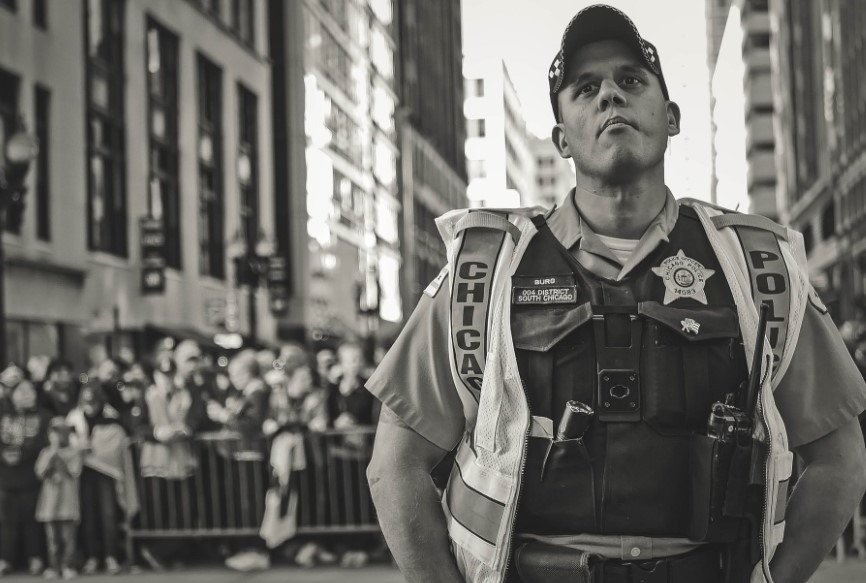NRA Misrepresents Police Survey, Legislation
In opposing a step on the day the Senate voted down a set of gun control accounts, that the National Rifle Association created claims.
Online advertisements from the NRA erroneously claimed that”80 percent of authorities say desktop checks will not have any impact” on violent offense. The poll says nothing of this type.
Before and following the election, the NRA said the measure”could have criminalized particular private transfers of guns” and needed”lifelong friends, neighbors and a few household members to acquire federal authorities consent” to exchange firearms. Background checks did not expand. It used to sales and online.
Survey Does Not Say That
The NRA’s internet ad monopolized the Washington Post’s homepage, filling the right-hand side of monitors, on April 17, the day the Senate took up many votes on gun steps, including a bipartisan you to enlarge background checks.
The advertisement, together with a video variant, urged viewers to”tell your senator to follow police” rather than President Obama and New York Mayor Michael Bloomberg. The Senate vote held that day fell six votes short of the 60 needed to maneuver the bipartisan step forward. If anybody calls their senator and did follow the NRA’s directive, it was under false pretenses.
The advertisement contains a picture of a police badge using a reference to some March poll with a group known as PoliceOne.com, a news and resource site for law police officers. The poll was not a study that aimed to collect responses from a sample of the police officers of the nation. Instead, it was a self-selected online survey, where over 15,000 of all PoliceOne.com’s 400,000 registered members opted to respond, possibly due to email solicitation or a URL to the poll on the PoliceOne.com site.
And there was no question inquiring if”background checks” could have an”impact on violent crime”

Actually, the poll methodology claims a query on criminal history checks was eliminated”because of defects with the query information, emphasized by a small number of consumers.” We talked with Jon Hughes, vice president of articles for its Praetorian Group, that possesses PoliceOne.com, about the NRA advertisements’ claim. He told us that he was”uncertain where that came from especially.
” He explained that the question which has been dropped — due to”a mistake in the way that it was ” — could not be the source, as the information did not match the claim. Hughes stated fact-check posts by the Washington Post and Slate.com about the advertisement”did a very good job of assessing the information to attempt and ascertain where that claim came out.”
Learn More: Bogus Claim of Voter Fraud in Ohio
We concur with our fact-checking colleagues the NRA probably derived its false claim from the poll question: “Do you believe a national law forbidding private, non-dealer transfers of guns between people would reduce violent crime” Almost 80 percent of respondents replied”no.” The query says nothing about requiring background checks, which might be different than forbidding interval, transfers. Hughes told me that there wasn’t any motive without mentioning them because 20, to refer. “We’d have stated that,” he stated, “if that is what we were planning for.”
However, the question is comparable to that which the NRA has stated in opposing the laws. We asked that the NRA’s press office because of its support to the claim of the ad, but we’ve not got an answer.
The PoliceOne.com poll does include some info on background checks, but nothing which pertains to this NRA claim. As a press launch out of PoliceOne correctly states,”[r]espondents were split on background checks” The poll asked, “Would requiring mental health history checks on potential buyers in most gun revenue from federally-licensed traders reduce cases of mass shooting episodes?” Forty-five percent stated no, and 31 percent said yes. The rest were uncertain.
The poll also inquired, “What would help most in preventing large scale shootings in people? Opt for the choice you believe would have the maximum effect.” Fourteen percent picked”improved history screening to ascertain mental health of gun buyers” as having the maximum effect. Above this: “more permissive concealed transport coverages for civilians,” 28.8 percentage; “more competitive institutionalization for mentally ill individuals,” 19.6 %; and”more armed guards/paid safety employees,” 15.8 percent.
Facts Check: True










